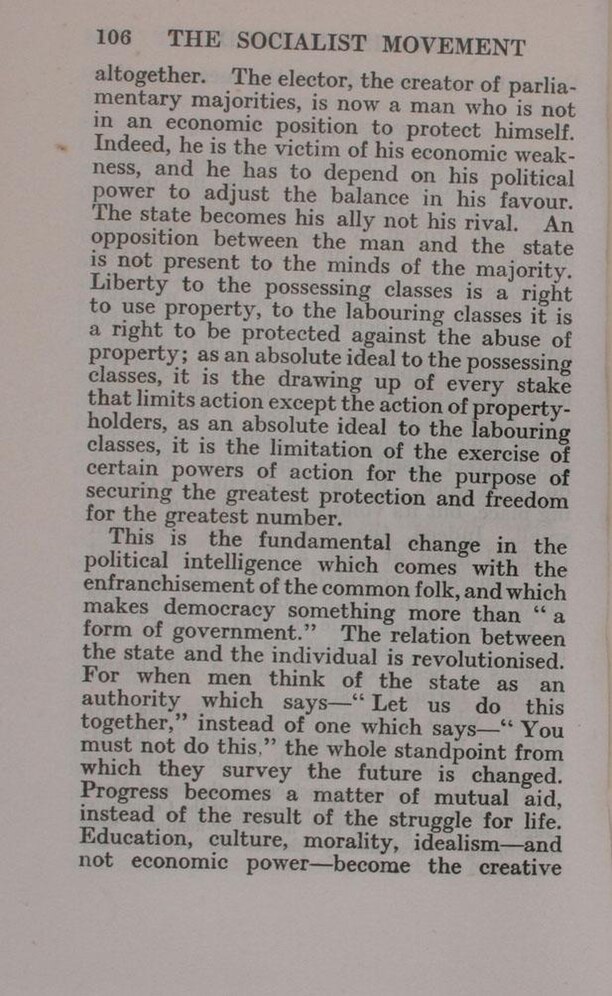altogether. The elector, the creator of parliamentary majorities, is now a man who is not in an economic position to protect himself. Indeed, he is the victim of his economic weakness, and he has to depend on his political power to adjust the balance in his favour. The state becomes his ally not his rival. An opposition between the man and the state is not present to the minds of the majority. Liberty to the possessing classes is a right to use property, to the labouring classes it is a right to be protected against the abuse of property; as an absolute ideal to the possessing classes, it is the drawing up of every stake that limits action except the action of property-holders, as an absolute ideal to the labouring classes, it is the limitation of the exercise of certain powers of action for the purpose of securing the greatest protection and freedom for the greatest number.
This is the fundamental change in the political intelligence which comes with the enfranchisement of the common folk, and which makes democracy something more than "a form of government." The relation between the state and the individual is revolutionised. For when men think of the state as an authority which says—"Let us do this together," instead of one which says—"You must not do this," the whole standpoint from which they survey the future is changed. Progress becomes a matter of mutual aid, instead of the result of the struggle for life. Education, culture, morality, idealism—and not economic power—become the creative
